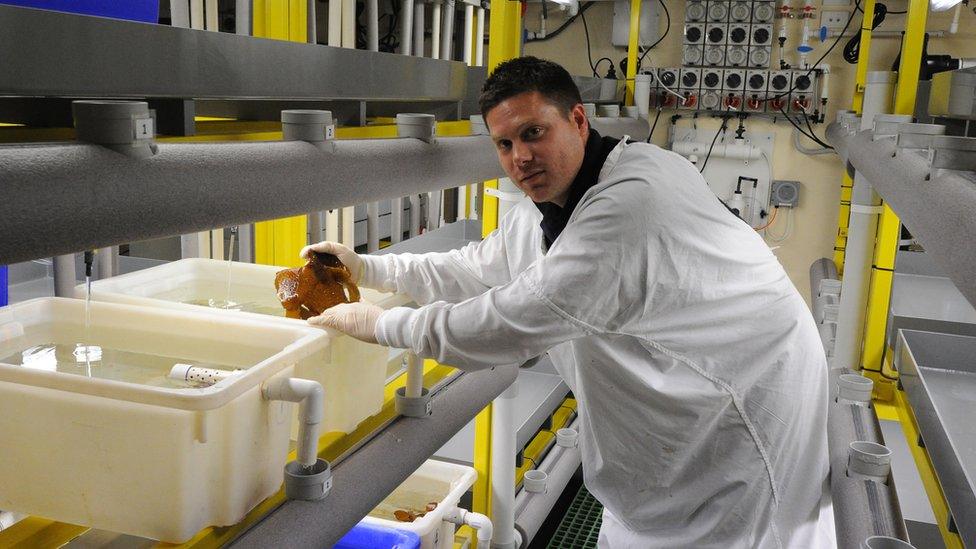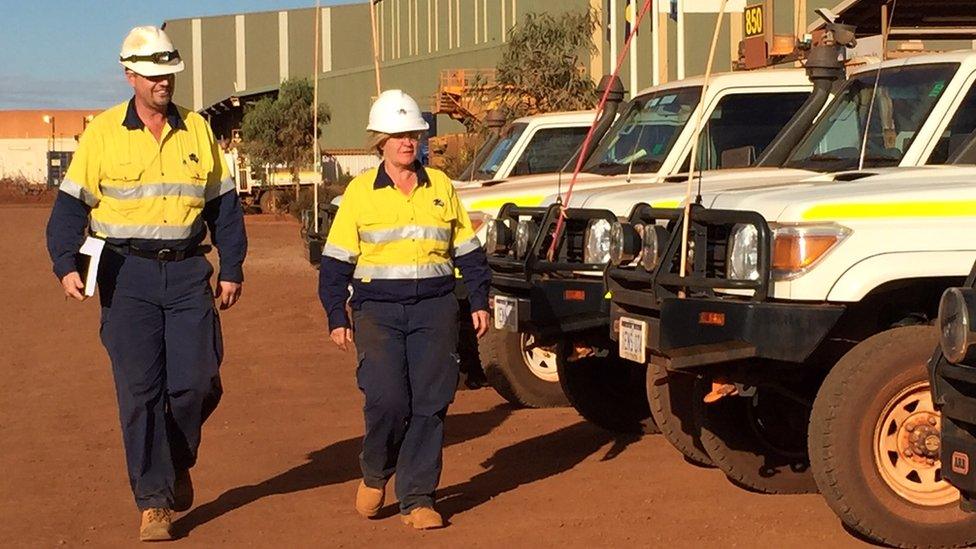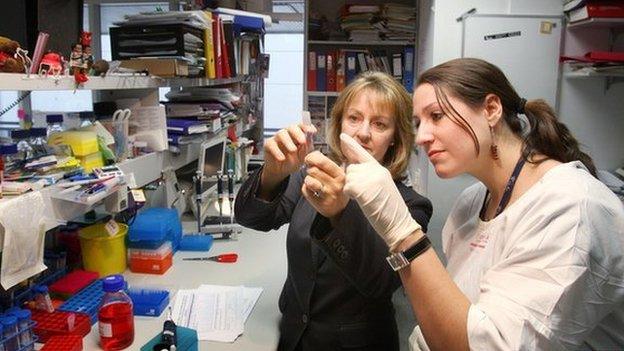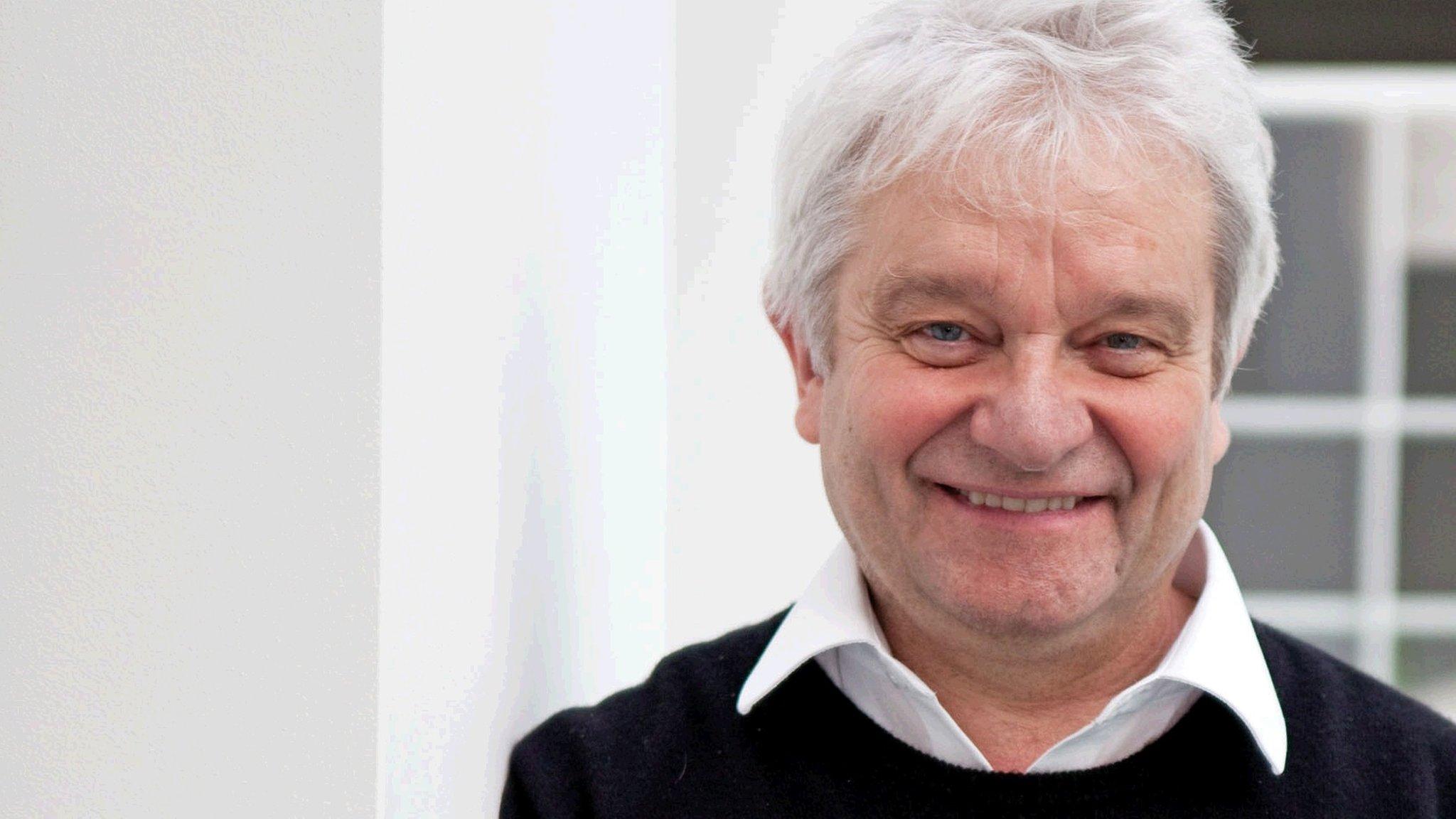Australia to spend A$1bn on 'ideas boom'
- Published

Australia's government has announced an ambitious plan to stimulate science and technology innovation.
Australia's government has announced a A$1.1bn (£530m, $801m) innovation plan to replace the faltering mining boom with an "ideas boom".
Prime Minister Malcolm Turnbull unveiled 24 measures on Monday which he said would help Australia transform into a "dynamic, 21st Century economy".
Many of the measures are focused on supporting entrepreneurial businesses.
But there are also proposed changes to immigration, and investments in science and maths education.

Analysis: Jon Donnison, BBC News, Sydney
A$1.1bn is a lot of coin to shell out for a government that came to power promising it would cut the deficit. But apart from that it's hard to see too many downsides to today's announcement.
Up to now Australia has had a pretty mediocre ranking in terms of money spent on innovation. The current Global Innovation Index, external rates the country only 17th in the world and only 5th in the Asia Pacific Region. A billion dollars plus over four years should do something to address that.
It's an acknowledgement, at least on paper, that Australia cannot rely on its mineral wealth forever although this money will likely not have an impact quick enough to address the current slowdown in the mining boom, which has been so damaging to Australia's economy.
Many will also see this as a rebuke to Malcolm Turnbull's predecessor Tony Abbott who in the eyes of his critics launched "a war on science", external slashing funding to many of the scientific bodies towards whom Mr Turnbull is thrusting wads of cash today.

The announcement is Mr Turnbull's first major economic policy plan since becoming prime minister in September.
He said that unlike a mining boom, a creative boom "can continue forever, it is limited only by our imagination".
He said companies which embrace innovation were "more competitive, more able to grow market share and more likely to increase their employment".
Immigration rules will also be changed to encourage entrepreneurs to relocate to Australia, and bankruptcy laws will be softened to encourage enterprises to take risks.
"The more high-quality, effective, productive enterprising entrepreneurs we can attract, the better. Because they drive jobs," said the prime minister.
The initiative, dubbed the National Innovation and Science Agenda,, external also provides A$99m to promote digital literacy and science, engineering and mathematics skills.
Children will be taught basic computer coding in primary and high school. Early stage investors will get tax breaks and a A$200m fund will co-invest in businesses that develop technology from Australian research.
A further A$36m is being provided to support Australian entrepreneurs to establish a presence in Silicon Valley, Tel Aviv and other technology hubs.
National Innovation and Science Agenda: major initiatives
A$200m early-stage innovation fund to co-invest in companies creating new services and products based off Australian research.
Reduction of default bankruptcy period from three years to one year.
Establishment of five "landing pads" in Silicon Valley, Tel Aviv and other locations to support global expansion of Australian businesses.
A$26m to support development of quantum computing.
A$13m to expand opportunities for women in science, technology and engineering jobs.
A$99m to support science and technology education.
- Published31 August 2015

- Published15 May 2015

- Published4 January 2015
.jpg)
- Published19 November 2015
